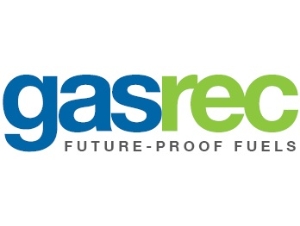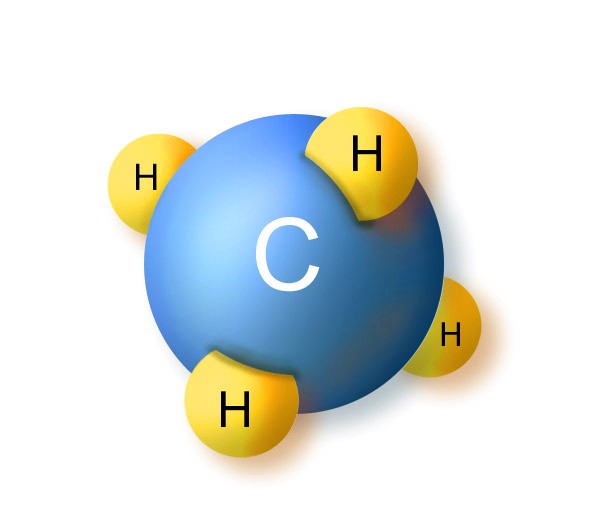 London, United Kingdom (16 December 2015) – Gasrec has this morning published a report, ‘Driving change to low emission transport’, which strongly urges the government to cease ignoring the extraordinary environmental and health benefits of natural gas powered vehicles and introduces a series of low cost measures that would encourage the growth of this proven, low emission transport solution.
London, United Kingdom (16 December 2015) – Gasrec has this morning published a report, ‘Driving change to low emission transport’, which strongly urges the government to cease ignoring the extraordinary environmental and health benefits of natural gas powered vehicles and introduces a series of low cost measures that would encourage the growth of this proven, low emission transport solution.
The findings show manufacturer testing reveals new Euro VI gas powered HGVs can deliver a reduction of 96% less carbon particulate emissions and 78% less NOx emissions, along with a yearly CO2 emissions cut of up to 19 tonnes per vehicle, compared to Euro VI diesel emission standards. The same results show the CO2 savings could be up to 100 tonnes per vehicle per year, if a Bio-LNG blend of fuel is used.
The report suggests a series of measures should be introduced by Government, as part of a joined up inter-departmental effort, in response to the recent Air Quality Consultation with the goal of implementation during 2016.
Key suggestions include:
- Adopt fuel taxation that reflects fuel impacts on the environment
- Encourage the wider introduction of Clean Air Zones including at British ports
- Enact the already agreed EU Weights and Dimensions Directive immediately
- Remove green technology driving licence restrictions for 3.5 tonne delivery vehicles
- Allow night time deliveries with quieter vehicles
- Promote low emission vehicles in public tendering
The report comes at a time when leading manufacturers have prepared the ground for the introduction of low emission gas-powered vehicles – particularly in the heavier weight category – but market confidence is constrained by the UK government’s lack of meaningful encouragement and support.
The report notes that if just one per cent of light and heavy commercial vehicles, buses and coaches across the UK were replaced with natural gas powered equivalents, the UK would benefit from a CO2 saving per annum of over 64,000 tonnes and a significant reduction in NOx, SOx and particulate matter emissions.
The consequences to UK health from these figures is striking. Government estimates show that NOx emissions contribute to 23,500 early deaths annually, with a further 29,000 due to particulate matter emissions.
Rob Wood, Gasrec’s Chief Executive, says: “Time is now running out for the government to tackle this critical issue, as they come under intense pressure from the media and public opinion, health specialists, the European Commission and even their own Supreme Court.
“The economic, commercial and environmental benefits of natural gas as a vehicle fuel are already widely recognised in Europe and around the world – and now it is time for the UK government to take these benefits seriously and properly support the growth of this technology.
“We are already seeing diesel come under the spotlight over emissions cheating and the total inadequacy of existing regulation on testing regimes versus ‘real world’ emissions. But perhaps the most worrying aspect of the ‘diesel fraud’ scandal is the strong probability that the growth of other viable fuels and technologies – natural gas included – may have suffered considerably as a result of the misrepresentation.”
The report notes that while the government’s focus on encouraging a transition to electric cars is to be encouraged, the only currently viable, low emission solution for vehicles at the heavier end of the transport spectrum is to fuel them with natural gas, which is also cheaper for fleet operators than diesel. It highlights that while heavier vehicles are far fewer in number, they bear a disproportionately high responsibility for transport-related air pollution. It also notes this fuel is now widely available and manufacturers currently have a selection of these vehicles available.
According to Natural Gas Vehicle Association data, there are already 1.2 million natural gas vehicles in use across the EU, the vast majority of which are cars and vans. But this figure also includes over 6,500 trucks and 14,500 buses.
The UK has benefitted from some of this growth over recent years, mostly through the adoption of liquefied natural gas by HGV fleet managers. In the UK there are now over 700 gas-powered HGVs on the road network, operated by some 25 leading household brands. Additionally, a number of lighter gas powered delivery vehicles are also being used in urban areas and fleets of natural gas powered buses are operating in Reading and Sunderland.
Source: gasrec.co.uk/
Gasrec is Europe’s leading supplier of low emission, liquefied natural gas fuel to the road transport sector. This environmentally friendly fuel delivers significant commercial and environmental benefits to transport and logistics operators – particularly those running heavy commercial delivery vehicles which are responsible for disproportionately high levels of pollution from road transport.
Natural gas, whether in compressed form (CNG) or liquefied form (LNG), is cleaner and less costly than diesel, and is now widely recognised as one of the most effective fuels for reducing harmful particulate and greenhouse gas emissions from road transport. Natural gas vehicles are also 50% quieter than diesel equivalents and ideally suited for deliveries in towns and cities during the night.
Gasrec supplies both LNG and CNG through 10 refuelling stations across the UK. The company designs, installs and manages ‘open-access’ and dedicated on-site refuelling facilities for its many transport customers, which include Arla, B&Q, Brit European, Culina Ambient, DHL Supply Chain, John Lewis, Kuehne + Nagel, Lenham, Muller Wiseman Dairies, NISA, Sainsbury’s, Stobart Transport, Howard Tenens, Tesco Distribution, UPS and Waitrose
